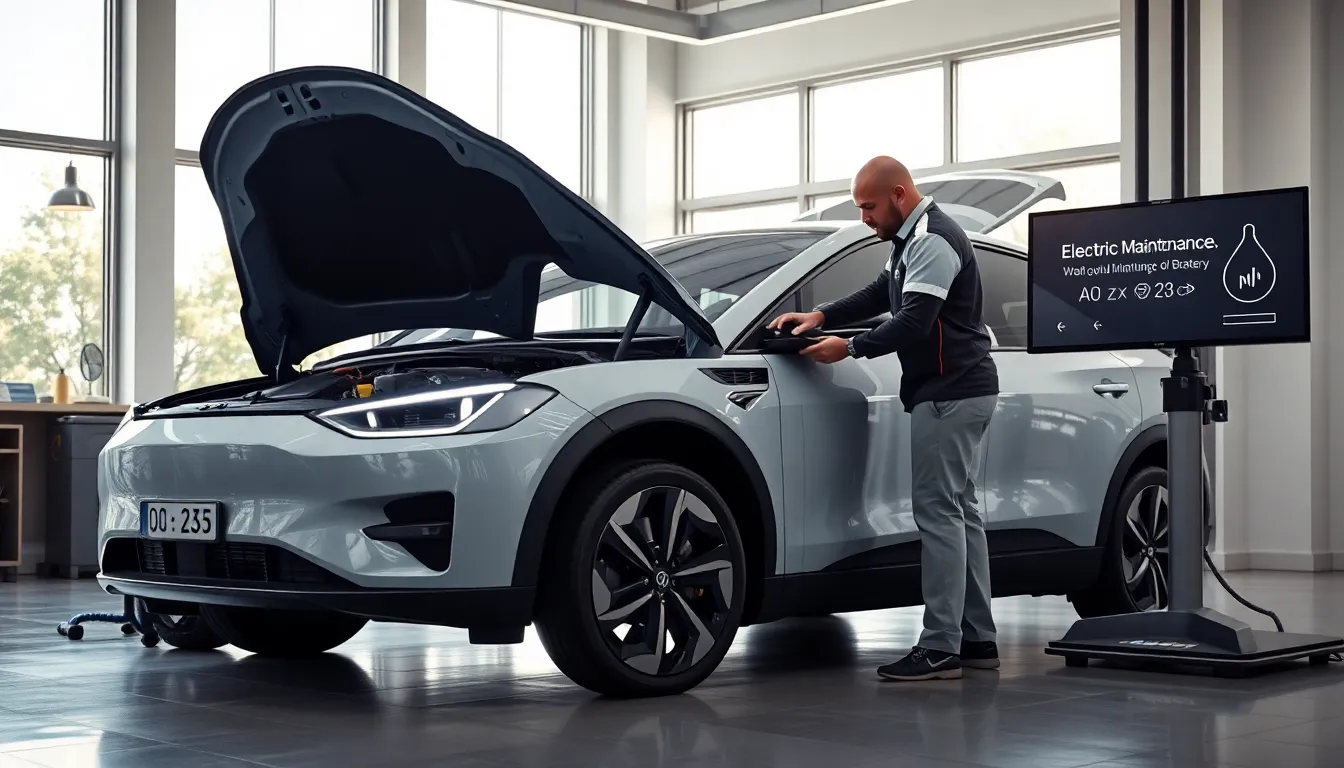When it comes to electric vehicles (EVs), the rules of the road, and the garage, often change. You might picture the trusty mechanic wielding an oily wrench under the hood, but electric cars are here to stir the pot. Spoiler alert: they don’t need oil changes like their gasoline-fueled counterparts. But before you unplug the idea of maintenance altogether, let’s explore the ins and outs of EV upkeep. Ready to dive deep into a world where oil is an afterthought? Buckle up.
Table of Contents
ToggleUnderstanding Electric Vehicle Maintenance

The maintenance of electric vehicles isn’t just a techy buzzword: it’s a whole different ballgame. Unlike traditional cars, which rely heavily on engine components, EVs are defined by their simplicity. With far fewer moving parts, these modern marvels need a different approach to maintenance. They ditch the oil change routine and emphasize other aspects that keep the vehicle running smoothly. So, what does it actually entail? Let’s dig a little deeper into this new automotive landscape.
Differences Between Electric and Combustion Engine Vehicles
Electric vehicles and combustion engine vehicles operate through fundamentally different systems. Combustion vehicles rely on burning fuel, which generates the heat and energy necessary for motion. This combustion process requires a plethora of fluids, chief among them oil, to keep everything lubricated. Oil prevents the engine parts from grinding against each other, maintaining efficiency while battling the excessive heat produced.
Conversely, electric vehicles are designed with a simpler mechanism. They depend on electric motors powered by rechargeable batteries, eliminating the need for oil-based lubrication. While traditional vehicles might require regular oil changes every 5,000 to 7,500 miles, EVs side-step this chore entirely, significantly reducing their maintenance timeline.
Why Electric Vehicles Don’t Require Oil Changes
The main reason electric vehicles don’t need oil changes is their engineering. With no combustion process that generates heat or friction requiring lubrication, the oil dependency simply vanishes. Instead, EVs focus on other critical systems to ensure longevity and peak performance. Here are some additional maintenance aspects unique to EVs:
Key Maintenance Requirements for Electric Vehicles
While oil changes might be off the table, electric vehicles still require some TLC. Regular inspection and maintenance of components like the battery, cooling systems, and brakes remain essential for optimal functionality.
Battery Care and Maintenance
Perhaps the most significant factor in EV maintenance is the battery. It’s the heart and soul of the vehicle. Keeping the battery charged within an optimal range significantly extends its life, most manufacturers recommend charging it between 20% to 80%. Extreme temperatures, both hot and cold, can affect performance, so parking in shaded or temperature-controlled areas can go a long way.
Tire Maintenance and Rotation
Tires definitely still need love. Regular rotation and pressure checks ensure even wear and can improve range. Proper inflation is crucial: under-inflated tires can decrease range and lead to premature wear.
Cooling System and Brake Maintenance
EVs are equipped with intricate cooling systems to manage battery temperatures. Regular checks can prevent overheating issues. Also, regenerative braking systems often extend brake life by utilizing energy in ways traditional vehicles do not, but the brakes still require regular inspection.
Environmental Impact of Electric Vehicles
When discussing maintenance, the environmental angle often pops up. EVs significantly reduce emissions, given their lack of dependency on fossil fuels. While they don’t completely eradicate environmental impacts, the reduction in carbon emissions compared to combustion-engine vehicles is remarkable.
Also, if charged with renewable energy sources like wind or solar, the overall carbon footprint shrinks even further. As more EVs hit the roads, the focus will increasingly shift to the sustainability of battery production and disposal along with overall lifecycle emissions.
The Future of Vehicle Maintenance
As the electric vehicle industry continues to grow, maintenance will inevitably evolve. Innovations in technology, such as advanced diagnostics and automation, may redefine traditional maintenance practices. Consider that some EVs already notify owners about potential issues via smartphone apps, enabling real-time monitoring.
Plus, with advancements in battery technology, future electric vehicles may require even less maintenance, further distancing themselves from conventional automobile upkeep. It’s not just about saving on oil changes: it’s about embracing a new era of vehicle care.






